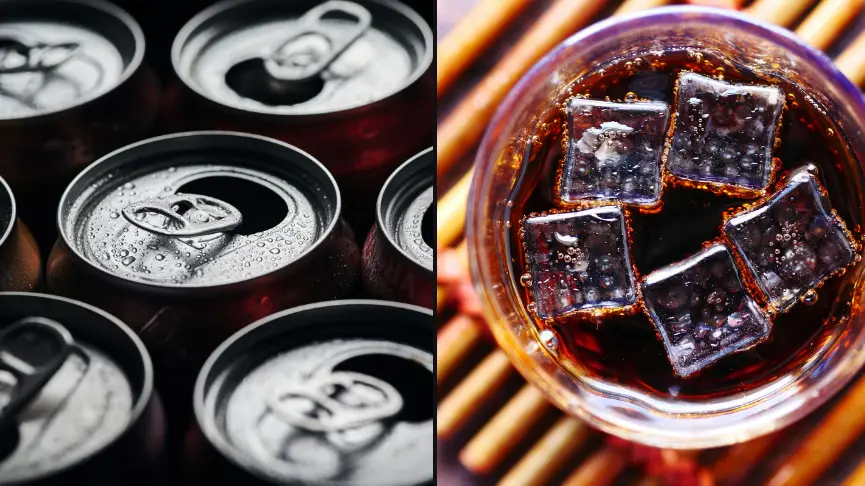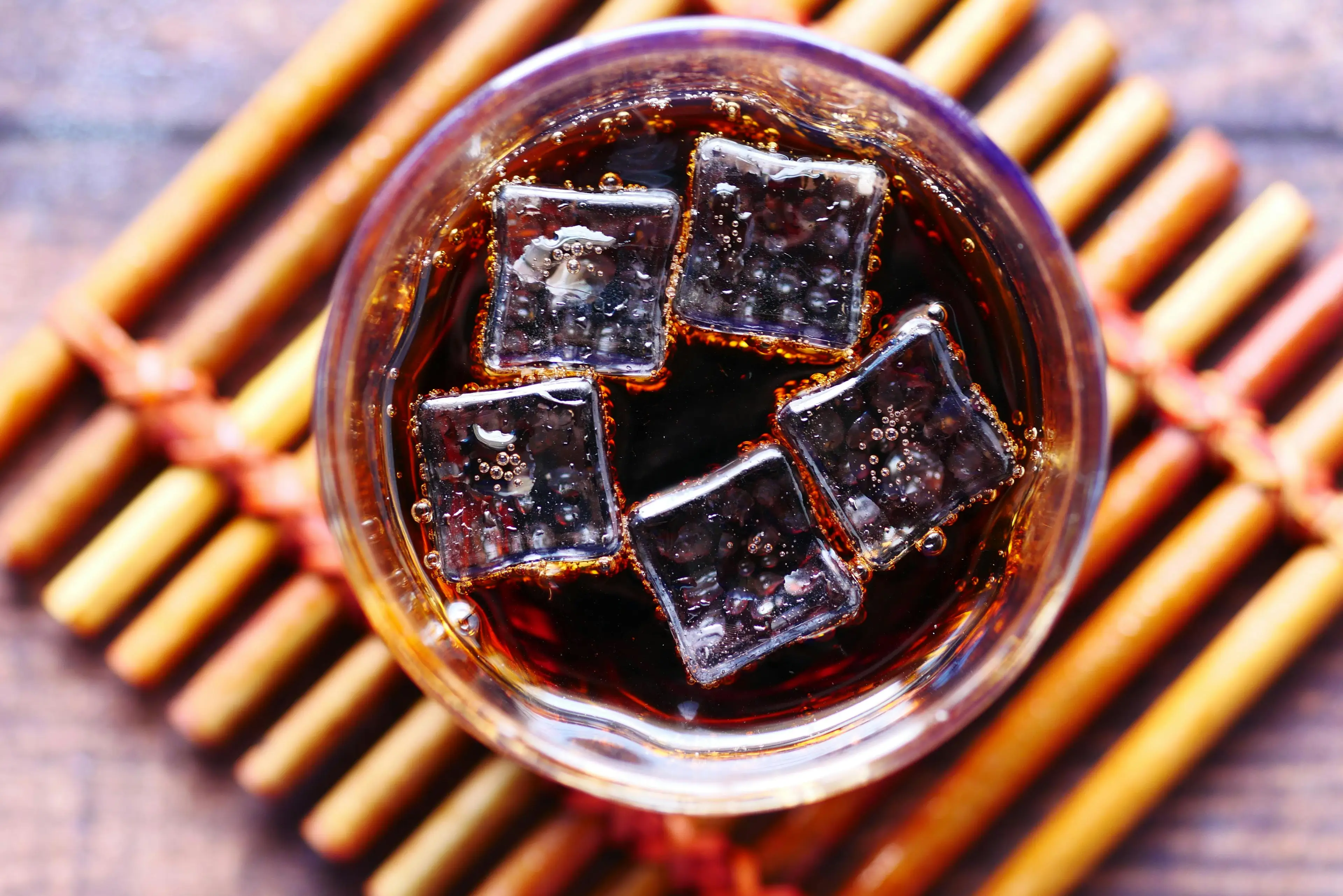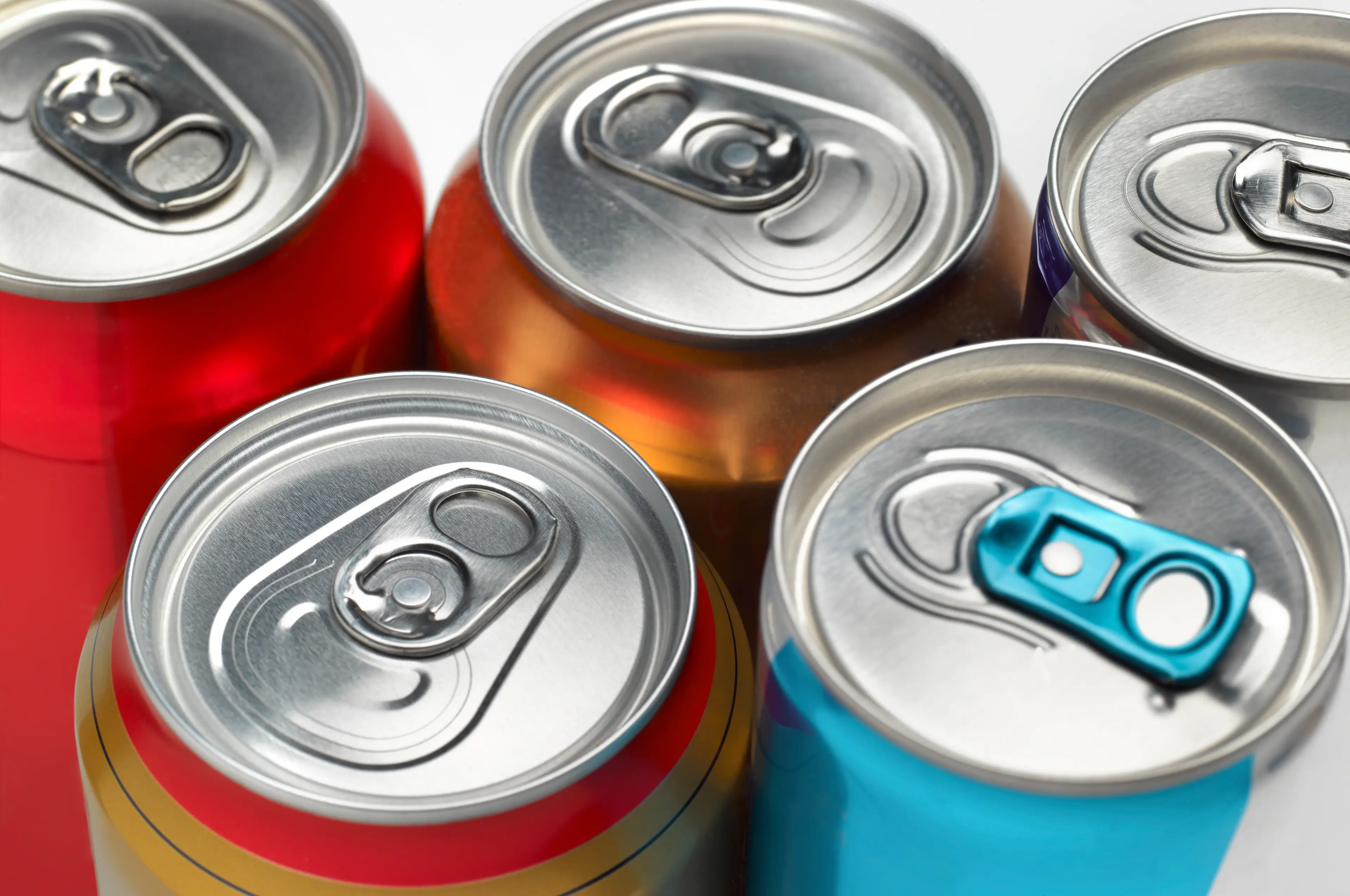
Scientists have issued a new warning to fizzy-drink lovers, and even those who only drink two cans a week need to listen up.
The results of a three-decade-long study conducted by scientists in Canada have sparked alarm among fans of the popular fizzy drink, as it found that these beverages can have a shockingly detrimental effect on your health.
Researchers at the Université Laval in Quebec City studied around 100,000 healthy adults over a period of thirty years in a bid to discover the damage which can be done by cans of pop.
Advert
The participants were split into two groups, so half of them swigged sugar-sweetened beverages - defined as 'soft and carbonated drinks (with or without caffeine), lemonade, and fruit cocktails' - more than twice a week, while the others refrained, or only 'rarely' treated themselves to one.
The aim of the study, published in the The American Journal of Clinical Nutrition, was to find out whether physical activity could cancel out the risks of getting cardiovascular disease for people who regularly consume soft and carbonated drinks.
Sadly, it seems that a quick cross fit session won't remedy your refreshment sins.

Experts found that those who drank sugar-sweetened beverages more than twice a week had a higher risk of suffering from cardiovascular disease, regardless of their physical activity levels.
According to the NHS, cardiovascular disease (CVD) is a general term for conditions affecting the heart or blood vessels which can include strokes, coronary heart disease and peripheral arterial disease.
Although a lot of people reckon two fizzy drinks is only a small amount, it can still wreak havoc on your health.
Despite sweating it out in the gym for the average recommended workout quota per week - which the Université Laval reckon is about 150 minutes - the research shows it won't overcome the dangers of cardiovascular disease.
It means that supping just a couple of cans of coke a week will undo all your hard work of boosting your cardiovascular system when exercising.

Scientists checked in with the nearly 100,000 participants about their physical activity biannually, while they were thoroughly assessed every four years.
Professor Jean-Philippe Drouin-Chartier, of Université Laval's Faculty of Pharmacy, said: "Physical activity reduces the risk of cardiovascular disease associated with sugar-sweetened beverages by half, but it does not fully eliminate it.
"The marketing strategies for these drinks often show active people drinking these beverages. It suggests that sugary drink consumption has no negative effects on health if you're physically active."
Researchers concluded that artificially sweetened drinks didn’t have the same negative impact, suggesting they are a safer option to switch to.
Professor Drouin-Chartier said: "Replacing sugar-sweetened beverages by diet drinks is good, because it reduces the amount of sugar. But the best drink option remains water."
Lead author and research scientist Lorena Pacheco added: "Our findings provide further support for public health recommendations and policies to limit people's intake of sugar-sweetened beverages, as well as to encourage people to meet and maintain adequate physical activity levels."
Topics: Food And Drink, Health, Science, News, World News